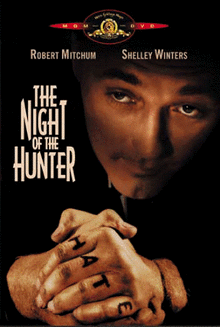Hidey-hidey-ho, friends, and welcome to the end of the world.
Signs of apocalypse: (1) duh, the one-two hurricane punch in the gulf that hardly needs explicating here, (2) the actual apology from the president regarding his response to said one-two punch, which apology (even though accompanied by near-simultaneous withering critiques of the state and local governments) made more than one head spin clear around in Linda Blair-like bafflement given the “NEVER APOLOGIZE” tattoo that pudgy, C.I.A. agent-endangering, creepily evil political boy genius Karl Rove had tattooed on the inner arm of all Bush Admin big-wigs, and (3) that we, the erstwhile gadflies-at-large who help this great nation to define those things in the culture that blink in the night with quivering disquietude, have chosen to correspond with you, the reading public. Yes, the end nears.
In our last column, we dared to expose the San Andreas-like rift that fuels the volatile friendship at the top of the D.M.T. food chain. Faced with a cultural milestone—the use of Sir Mix-a-Lot’s “Baby Got Back” in a back-to-school ad for Target (an ad featuring dancing ten year-olds rather than dancing buttocks)—we stared long and hard at our own disagreement. In short:
Layman: Love it! Those who would be scandalized just don’t dig the groove! Anything that gets the funny side of hip-hop out there is my girlfriend!
Fischer: Hate it! Must our tastiest cultural morsels be recycled into kitschy ads so quickly? Let the beast named nostalgia take a rest from recycling a “past” that is barely even yesterday!
 Unable to reach even the most remote consensus on this topic of searing concern to the nation, we asked our readers to weigh in. That’s right, kids—we asked for you to tell us the story. We dared to invite a hiss of air into our otherwise hermetically sealed operation here on the top floor of D.M.T. Headquarters, a set of offices guarded at great expense by a set of sleepless Israeli commandos in brown berets and toothless grimaces armed with starving, scrotum-less Dobermans and automatic weapons set to take down both intruders and dissenting opinions. Truth is, we gave the whole team a week off and called the U.S. Postal Service to tell them that Stella, our local mail carrier, should take time from her five-a-week psychotherapy (which we pay for under court order—don’t ask) and heave some mailbags up to D.M.T., pronto-fast.
Unable to reach even the most remote consensus on this topic of searing concern to the nation, we asked our readers to weigh in. That’s right, kids—we asked for you to tell us the story. We dared to invite a hiss of air into our otherwise hermetically sealed operation here on the top floor of D.M.T. Headquarters, a set of offices guarded at great expense by a set of sleepless Israeli commandos in brown berets and toothless grimaces armed with starving, scrotum-less Dobermans and automatic weapons set to take down both intruders and dissenting opinions. Truth is, we gave the whole team a week off and called the U.S. Postal Service to tell them that Stella, our local mail carrier, should take time from her five-a-week psychotherapy (which we pay for under court order—don’t ask) and heave some mailbags up to D.M.T., pronto-fast.
In the first bag, we found this lengthy missive from loyal reader and smarty-pants responder George Motisher. It’s a long letter, and we have chosen to respond section-by-section, thusly:
O.K., George, we’re going to stop you right there. We like to think that we are, in fact, hyperarticulate—the kind of bald white men who can mesmerize with the sheer concision and Western-Civ rationality that is our birthright. Can it be that what we write is, actually, capable of creating nothing but confusion? Can it be that our precisely drafted missives to the reading public are nothing more than a bunch of verbal tap-dancing that only we hear as Morse code?August 30, 2005
Dear Sirs,
In your recent D.M.T., neither of you has pointed out the ridiculous irony of a song celebrating the graceful curves of the female bottom being used to advertise backpacks, which obscure the view of most of it. Nor can I figure out from your abbreviated debate what, exactly, you are arguing about. Is the disquieting trend the use of quasi-nostalgic tunes in advertising, or is it the use of “My Baby’s Back,” in particular?
That is to say, did you really not understand what we were arguing about? 1
 We agree with you that it was an oversight not to point out the irony of a song being converted from Celebration Of Female Buttock to Celebration Of That Which Obscures Female Buttock, but you know, George, if we ran down every rhetorical alley in these D.M.T.s, we would not have time for drinking, smoking and listening to music, not to mention raiding the pension funds of our minions. Besides, some backpacks—like, those cute little ones that are really barely backpacks at all but more like little purse-pouches that dangle across the gently concave backs (preferably covered in a mere spaghetti-strap thing that seems capable of disintegration in a mild breeze) of, say, U.N.C.-Chapel Hill nursing students in late August—seem to enhance through mimicry the magic of the natural fleshly form. It’s a matter of debate, and we hope to see you hosting some kind of round-table discussion on it at the Disquieting Modern Trends Annual Convention and Bender (scheduled for late February 2006 in K.C., Mo.—watch this space for details) next year. You the man, George. But did you REALLY not understand our debate?
We agree with you that it was an oversight not to point out the irony of a song being converted from Celebration Of Female Buttock to Celebration Of That Which Obscures Female Buttock, but you know, George, if we ran down every rhetorical alley in these D.M.T.s, we would not have time for drinking, smoking and listening to music, not to mention raiding the pension funds of our minions. Besides, some backpacks—like, those cute little ones that are really barely backpacks at all but more like little purse-pouches that dangle across the gently concave backs (preferably covered in a mere spaghetti-strap thing that seems capable of disintegration in a mild breeze) of, say, U.N.C.-Chapel Hill nursing students in late August—seem to enhance through mimicry the magic of the natural fleshly form. It’s a matter of debate, and we hope to see you hosting some kind of round-table discussion on it at the Disquieting Modern Trends Annual Convention and Bender (scheduled for late February 2006 in K.C., Mo.—watch this space for details) next year. You the man, George. But did you REALLY not understand our debate?
If it is the latter, neither of you should be complaining. The original artist, I’m sure, isn’t. He’s probably laughing to the bank on what he made selling his hip-hoppin’ soul. If some Madison Avenue men decided to use D.M.T. as the copy for a Target ad, I doubt there’d be complaints, providing your asking price was met.
 We have no doubt that Mix is laughing his way to the bank2, and that is certainly not a problem for either of us. As far as we’re concerned, Sir M should be living off some kind of government subsidy—not to mention receiving one-a those Kennedy Center Honors that nobody watches when it’s broadcast on PBS after which he sits down with Charlie Rose for a long, pretentious chat—all because of his unique and indelible contribution to world culture. If Target must pick up the slack where Uncle Sam is lacking, well, that’s just America for you. As far as the question of the D.M.T.’s use in a Target ad goes, let’s just say that Target has our phone numbers. Any objection we have to the use of art (ours or anyone else’s) in TV advertising is strictly a matter of the exponentially too-early use of certain cultural icons and not a matter of purity. If we have not been clear about this in the past, let us say it again: Purity be damned. We are not Florence Henderson.3
We have no doubt that Mix is laughing his way to the bank2, and that is certainly not a problem for either of us. As far as we’re concerned, Sir M should be living off some kind of government subsidy—not to mention receiving one-a those Kennedy Center Honors that nobody watches when it’s broadcast on PBS after which he sits down with Charlie Rose for a long, pretentious chat—all because of his unique and indelible contribution to world culture. If Target must pick up the slack where Uncle Sam is lacking, well, that’s just America for you. As far as the question of the D.M.T.’s use in a Target ad goes, let’s just say that Target has our phone numbers. Any objection we have to the use of art (ours or anyone else’s) in TV advertising is strictly a matter of the exponentially too-early use of certain cultural icons and not a matter of purity. If we have not been clear about this in the past, let us say it again: Purity be damned. We are not Florence Henderson.3
If the complaint is the former—the use of nostalgia before it has matured—you have no real gripe either, and may even be a little hypocritical given that what is disquieting to you is often reinforced with trips down your own memory lanes. False nostalgia is far from a modern trend; it just seems that way due to the quick commercialization of practically everything, and with the careening speeds of new styles, it is only natural that our fast-paced society would demand a fast-paced nostalgia. So we see repulsive and chintzy retro Mini Coopers and Thunderbirds, B-movie remakes, and the plot-gap filling musical interludes of a Jerry Bruckheimer crime-lab program. We see Old Navy and Target ads. Heck, we even see purple dinosaurs singing new lyrics to a really crappy kids’ song. But Elvis and Lynard Skynard
[sic] sales took off almost immediately after they kicked their respective buckets, James Dean became an icon just a short time after he was in the ground, and, decades earlier, Rudolf Valentino was worshipped even before he was cold, and women paid exorbitantly to view his celluloid mementos.
Nostalgia is not just a matter of time, but of circumstance and perception, much like morality, politics, religion, or disquieting trends. And as to the possibility of something being remembered with praise before being proven, so what? I quote Heywood Broun: “Posterity is as likely to be wrong as anybody else.”
 O.K., George, slow down, buddy. We see your game now, and bravo for your explosion of D.M.T.-like cultural reference. 4 You totally understand our debate—you just want to play along. That said, you’re not going to get anywhere with us by suggesting we are “hypocritical” due to our own strain personal nostalgia. George, we are human—we bleed like the other puppies in the litter. We make the appearance of crying when we watch Gone with the Wind.4.5 The issue is the speed and ravenousness of the ad (and TV and movie and publishing and general U.S. commercial) community’s nostalgic cycle. You say, as Will did, “ever has it been so,” and then you misspell “Lynyrd Skynyrd.” What can we say? Though we DO want to know more about that whole Rudolf Valentino thing. Will women someday pay exorbitantly to read the D.M.T.? (Don’t answer that, George.)
O.K., George, slow down, buddy. We see your game now, and bravo for your explosion of D.M.T.-like cultural reference. 4 You totally understand our debate—you just want to play along. That said, you’re not going to get anywhere with us by suggesting we are “hypocritical” due to our own strain personal nostalgia. George, we are human—we bleed like the other puppies in the litter. We make the appearance of crying when we watch Gone with the Wind.4.5 The issue is the speed and ravenousness of the ad (and TV and movie and publishing and general U.S. commercial) community’s nostalgic cycle. You say, as Will did, “ever has it been so,” and then you misspell “Lynyrd Skynyrd.” What can we say? Though we DO want to know more about that whole Rudolf Valentino thing. Will women someday pay exorbitantly to read the D.M.T.? (Don’t answer that, George.)
Personally, I don’t really care for backpack ads, and try not to watch them. I’m from a day when schoolbooks weren’t overloaded with bright color photos, useless graphs, and inserts full of so-called information; and students didn’t have to take home tons of work in order to pass meaningless tests. In those days, girls carried only a couple of books, which they clasped to their bosoms. There were numerous advantages to this.
First, one could gaze down into a shady and seductive garden, where lovely buds were ripening into lush and juicy melons. While not yet the size of apples, in this setting they were more tempting than that more famous forbidden fruit. Second, one could tell from the angles of Trigonometry, Book I, just which female had the best hypotenuse. Third, with books out in the open, it was easily ascertained who might be worth pursuing. One steered clear of a girl with unicorn book covers, for example, but stallions were another matter, and any maiden clutching sports cars or sports heroes became the Goddess of Hardbound. And, lastly, one could actually follow closely and still see, unobstructed, all those sweetly oscillating rear-end curves. The advantage to the young ladies was that their texts were as effective as push-up bras, causing even the immature seventh graders to assume the proportions of a Farrah Fawcett. No one appeared to have teeny boppers, and guys would line up to lug a distressing damsel’s tomes all over campus, in order to find out what might be real.
As I said, I don’t care about backpack ad nostalgia, having a deep longing for those times so much better. I feel that, no matter what Target says, students were not meant to be beasts of burden, and backpacks are for Native American mothers, Sherpas, tree-huggers, and army personnel. If God, or Allah, or Indra, or whoever, wanted us to tote things on our backs, He/She would have made us with shelves at the tops of our asses that would make us all look like J-Lo.
 You know, George, examining your work closely brings out the inner detective in us. Who is George Motisher? Where is he from and when was he born? We sift through your prose and attempt to construct an artist’s sketch of your soul. The dead give-away, age-wise, is your Farrah Fawcett reference, which places you pretty precisely in junior high school (there was no “middle school” back then) in the early 70s. Let us just say that a portion of the D.M.T. is extremely familiar with this era. Some your description of these girls you went to school with has a creepy Robert Mitchum / Night of the Hunter tone, frankly, dude, and we think it’s fair to say that—no matter how few people may frequent the Yankee Pot Roast Web site—surely some law enforcement official is even now staking out the various bus stops near the Motisher residence. Could be that you grew up in some more genteel locale in the 70s, a place where “guys would line up to lug a … damsel’s tomes all over campus.” In our experience, the teenaged boys of the 1970s (at least in New Jersey) carried nothing but their bongs around a campus full of cotton camisoles and India-print dresses that, while not Fawcettesque, did have a kind of Carly Simon appeal that the inner James Taylor in each of the boys utterly responded to. 5
You know, George, examining your work closely brings out the inner detective in us. Who is George Motisher? Where is he from and when was he born? We sift through your prose and attempt to construct an artist’s sketch of your soul. The dead give-away, age-wise, is your Farrah Fawcett reference, which places you pretty precisely in junior high school (there was no “middle school” back then) in the early 70s. Let us just say that a portion of the D.M.T. is extremely familiar with this era. Some your description of these girls you went to school with has a creepy Robert Mitchum / Night of the Hunter tone, frankly, dude, and we think it’s fair to say that—no matter how few people may frequent the Yankee Pot Roast Web site—surely some law enforcement official is even now staking out the various bus stops near the Motisher residence. Could be that you grew up in some more genteel locale in the 70s, a place where “guys would line up to lug a … damsel’s tomes all over campus.” In our experience, the teenaged boys of the 1970s (at least in New Jersey) carried nothing but their bongs around a campus full of cotton camisoles and India-print dresses that, while not Fawcettesque, did have a kind of Carly Simon appeal that the inner James Taylor in each of the boys utterly responded to. 5
In any case, all this 1970s in the Midwest stuff has us reëvaluating the question of whether you really misunderstood us or not. Maybe you didn’t get our debate because it was not “postmodern” enough for you, partaking as it did in the hopelessly moribund form of “narrative writing” (print being dead, and such positivist models as “argument” having been summarily decommissioned by uppity French smart people as soon as their signifiers were decoupled). You know, we can do “pomo” as well, having attended “college” in the “80s” (as, we suspect George, did you). To wit:
You will note that the use of gratuitous quotation marks in the foregoing lends a tone of raised-eyebrow knowing irony to the whole affair, which is pretty entry-level pomo. The device is therefore tired and overused, lending a note of blasé, seen-it-all déclassé retread Exile-on-Main-Street jadedness to the proceedings, which, of course, is also tres pomo. You will also note the überpomo pastiche of pop culture references heretofore. You will note all this, but you will not acknowledge it, for to acknowledge it would be to conscience a genuine feeling of boredom or growing impatience, a raw emotion not yet lacquered over by the cultural logic of late capitalism, which frankly would not be very pomo of you.
Perhaps you may lose the train of our narrative and begin assembling your own meanings through the reässemblage of those signifiers we strew about herein like so many used syringes at Andy Warhol’s Factory. Or perhaps you may be enamored of this theoretical stunting, so enamored that you consider its application to literature by militant feminist English lesbians, and hie yourself to the University of Bristol to found the first Department of Queer and Gendered Critical Letters, known forever thereafter to post-doc wags the world over as “Pomo Homo Brit Clit Lit Crit” (don’t tell us you didn’t see that coming).
That’s what we would do if we had the time and some grant money, anyway. We would, Mr. Motisher. But instead we sit and type in the frenzy into which we have been whipped by you. It discomfits us, this frenzy, reminding us of the gas occasioned by the consumption of too many Paradise hot dogs.
So I guess I can’t help solve your dilemma. I do feel, though, that canvassing reader opinions is a rather craven method, unless the loser agrees to commit hari-kari. (This would be really effective done in the style of Kurosawa, but with the simple addition of a chorus of geishas gyrating to some Japanese rap).
— George Motisher
Craven? Our momentary desire to consult with our reading public may have been foolish and unscientific, but we do not see it as craven. If you are any indication, George, our reading public is a scary group from which more cowardly C-list Blogebrities would stay away. As for your hari-kari suggestion, let’s just say that we’re not really into ceremony. Whoever ultimately loses this debate will pay, but he won’t see it coming.
In any case, perhaps we shall not again so baldly invite reader response, since it reminds us that the philistines are truly at the gates. And so, in timely homage to Ignatius J. Reilly (to whom we aspire to be heirs) and his beleaguered city, we hereby pronounce our work “acceptable by any theological or geometrical standards, however abstruse, and suggestive of a rich inner life” (A Confederacy of Dunces, p. 1), and the rest of y’all can suck it.
Next Edition: Is anyone still listening to commercial radio? And if so, are they the same people “watching” radio shows that are inexplicably shown on television?



